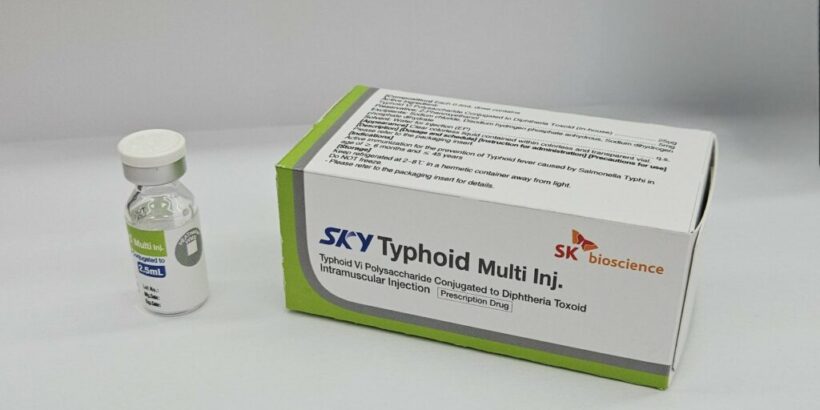Earlier this month, a new typhoid conjugate vaccine (TCV) product received prequalification (PQ) from the World Health Organization (WHO). The WHO PQ process ensures that immunizations meet acceptable global standards of quality, safety, and efficacy. All vaccines purchased through Gavi, the Vaccine Alliance, must have achieved WHO PQ approval. SKYTyphoid™ – developed by SK bioscience and the International Vaccine Institute (IVI) – is the third TCV to achieve PQ approval and is now eligible to countries with Gavi support.
To understand more about why prequalification for vaccines is so important, we talked with Dr. Emmanuel Mugisha, Director of PATH’s work on the TyVAC project and Senior Advisor on Vaccines and Immunization at PATH. Dr. Mugisha is also a member of the Uganda National Immunization Technical Advisory Group (NITAG), and member of the Strategic Advisory Group of Experts (SAGE) Working Group on Respiratory Syncytial Virus.
1) What is significant about a vaccine product achieving WHO prequalification?
The PQ process evaluates manufacturing, quality, and clinical trial results according to very rigorous international standards. PQ from the WHO certifies that a vaccine is safe and effective and meets global standards for use in a diverse population. The SAGE Working Group for Typhoid also rigorously reviews vaccine characteristics and data from clinical trials to ensure all information is scrutinized before a product is awarded PQ status. It is a signal to policymakers, including NITAGs and Ministries of Health, and health practitioners, that a vaccine can be considered for use in their country. In the case of Gavi-eligible countries, it also means that the vaccine is available with Gavi support.
2) Why is prequalification of an additional TCV product important?
This will diversify and broaden supply amid growing demand. We have made strides in getting policymakers to prioritize typhoid control, but global prevalence remains very high, and drug resistance is increasing, which means that millions of people are still at risk, many of them children. Additional vaccine products lead to increased supply for countries that are planning campaigns and routine introductions as well as countries that already have TCV as part of routine immunization. With an additional vaccine, there can be a more consistent global supply available to countries.
3) How will the addition of this new vaccine influence TCV introduction?
When working with country decision makers and Expanded Programmes on Immunization (EPIs), questions about vaccine supply arise quickly and regularly. Policymakers want to be sure that if they introduce a vaccine that it will remain available in the long term. This additional TCV allows for increased supply to improve access to a proven typhoid prevention tool. Several countries have already introduced TCV into their routine immunization programs with Gavi support including Liberia, Malawi, Nepal, Pakistan, and Zimbabwe. As we continue to advocate for TCV introduction and uptake, having a third TCV will add vaccine diversity and supply, an encouraging sign for policymakers in typhoid-endemic countries or with high burdens of drug resistant typhoid.
4) What is the message to policymakers now that we have three PQ’ed TCVs?
The time is now to prioritize TCVs! We have more vaccine supply, current TCVS are eligible for Gavi pricing, and we know that this is a safe and effective way to prevent illness. The effects of climate change and conflict are increasing the risk of typhoid and other waterborne diseases. At the same time, drug resistant typhoid strains remain a growing global health concern. Policymakers can be increasingly confident that now is a strategic time to introduce TCV, protect against typhoid, and improve the health of communities in their country.
Cover photo: SK bioscience’s typhoid conjugate vaccine SKYTyphoid™ developed with technology transfer from IVI has achieved the World Health Organization prequalification (PQ). Credit: SK bioscience.



